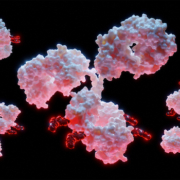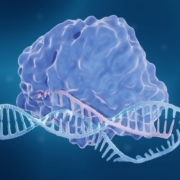Oncologists defend CAR-T after FDA advisory
Oncologists defend CAR-T after FDA advisory
Published: Dec 18, 2023
By Jill Neimark
BioSpace
Last month, the FDA announced that BCMA- or CD19-directed autologous CAR T cell therapies were under review after the agency received reports of several secondary blood cancers in patients who have been treated with them. But leading oncologists say the cancers appear to be rare and the therapy is lifesaving in the context of deadly malignancies that have already outwitted chemotherapy and radiation.
“I doubt you will meet a CAR-T treating physician who will change their practice due to this warning,” said Rahul Banerjee, a physician-researcher specializing in multiple myeloma at the Fred Hutchinson Cancer Center in Seattle, Wash. He added that although CAR-T can put myeloma into a durable remission, for most patients the cancer will return sooner or later, and that’s a bigger worry. In addition, “There is something called immortal time bias,” he explained. “If you get CAR-T and you live longer, your risk of a different cancer increases.”
Biopharma companies in the CAR-T space appear unfazed for now. A spokesperson for Novartis, whose Kymriah was the first CAR T therapy ever approved in 2017, told BioSpace, “Novartis has found no causal relationship between Kymriah and secondary malignancies and remains confident in [its] favorable benefit/risk profile.” A spokesperson for Gilead Sciences offered similar reassurance: “After conducting an analysis of our data, we are not aware of any evidence to date that treatment with Yescarta or Tecartus has a causal role in the development of these malignancies of T-cell origin.” Yescarta is approved for large B-cell lymphoma and high-grade B-cell lymphoma, Tecartus for relapsed or refractory B-cell acute lymphoblastic leukemia.
“To be fair,” Banerjee said, “the FDA never said CAR T therapy caused these cancers, only that they were investigating them. It was the lay press that sometimes missed that nuance.”
The Many Causes of Secondary Cancers after CAR-T
According to Bruce Levine, a specialist in cell and gene therapies at the University of Pennsylvania’s Perelman School of Medicine, about 35,000 patients worldwide have been treated with CAR T therapies, including those in clinical trials. If there are secondary cancers, “it’s a very small percentage that happen to be induced by the therapy,” he told BioSpace.
The risk of a secondary cancer after CAR-T has long been known, said Brian Skorney, a Baird senior research analyst who coauthored a research note with fellow senior analyst Jack Allen. “Is it a surprise that an engineered aggressive treatment with a viral vector results in secondary malignancies in rare cases? It’s not a surprise at all,” Skorney told BioSpace.
CAR-T involves extracting a patient’s blood, isolating immune cells called T cells and using an engineered virus to genetically modify the cells to display cancer-targeting chimeric antigen receptors (CARs). Once infused back into the patient, the CAR T cells lock onto the malignant cells and kill them. On rare occasions, though, the engineered virus might insert the CAR code at a location in the genome that disrupts the function of a gene or activates a cancer-promoting gene. This is known as insertional mutagenesis. It is one reason the FDA demands 15 years of follow-up for every CAR-T patient.
Levine listed a number of questions that need to be answered to contextualize the rare cancers: “Are the cancers CAR positive? If so, is the CAR a passenger in what happened to be a secondary malignancy, or did it provide some assist? What was the clinical status of the patient in terms of immunosuppressive therapies, radiation, prior chemotherapy and conditioning chemotherapy, all of which increase risk of a secondary cancer?”
Allen added that it should be very easy to run a genetic test on the cancer cells to see if the CAR is present. There are two types of viral vectors used in CAR T therapy, lentiviral vectors and gamma-retroviral vectors, and genetic testing could pinpoint whether one was more frequently seen in these rare secondary cancers, he said. Both analysts hope for an updated advisory from the FDA soon with more details.
The Risk-Benefit Calculation
Until it’s clear what the risk of secondary cancer is, Banerjee said the expansion of CAR-T labeling may be slowed. “I could see this warning putting a spook in the field for smoldering cancers, pre-cancers or autoimmune diseases,” he said. “But I for one would not call for the field to pause using CAR-T in the cancer setting. For instance, if you treat a patient’s cancer earlier, when they are healthier, you may end up with a lower risk of another cancer later.”
In fact, Banerjee said, he, along with other oncologists, have been hoping the FDA will expand its approval for CAR-T in myeloma, which now requires a patient to have received four previous treatment regimens. “Those previous regimens can really be tough and challenging for patients,” he said. “We’ve been hoping the FDA will allow us to move CAR-T strategically into [an] earlier phase of treatment.”
There are hundreds of companies in the CAR-T space, Skorney told BioSpace, “but the ones that took the most pain after the announcement are [those] focusing on autoimmune disease.” On Dec. 5, William Blair hosted a virtual panel on cell therapies as part of its Innovator’s Panel. In a subsequent research note sent to BioSpace by the firm, the consensus of physicians and public and private cell therapy companies was that ”the risk/benefit of CAR T cell therapies in autoimmune patients differs from that of patients with late-stage cancer as most autoimmune patients are not terminal within the next 6 months.” For these patients, the bar may be set higher for safety, with the William Blair report suggesting that any adverse events higher than grade 2 (bothersome but not dangerous) would be of concern.
The announcement of the FDA’s investigation came days ahead of the American Society of Hematology’s annual conference, which took place in San Diego from December 9-12. The advisory was a subject of discussion, Banerjee said, “at almost all of the Friday scientific symposia that touched on CAR-T.”
The FDA also recently delayed a decision on a label expansion for Bristol Myers-Squibb and 2seventybio’s Abecma (ide-cel), which had an initial review date of Dec. 16. The drug is currently allowed as a fifth-line treatment, after four other treatment regimens have been tried, and the partners had hoped Abecma would be approved for earlier use. An advisory committee meeting on the label expansion will likely occur in the first quarter of 2024 and a large group of experts will be convened then, Allen said, adding, “we’re hoping CAR-T itself will be a topic and we can all ask questions then.”
For now, Banerjee is undeterred in their enthusiasm for CAR-T. He recalled a recent patient who had been hospitalized for a month and whose myeloma had recurred and physically grown into her kidneys—a rare occurrence for a blood cancer. This patient—like every myeloma patient—only qualified for CAR T therapy after receiving four previous treatment regimens. A month after CAR-T infusion, she was in remission.
“CAR-T works very quickly and that’s what I love about it,” he said. “The benefits are very real. It’s a game changer, a lifesaver. That’s what our patients deserve.”
Source: BioSpace










